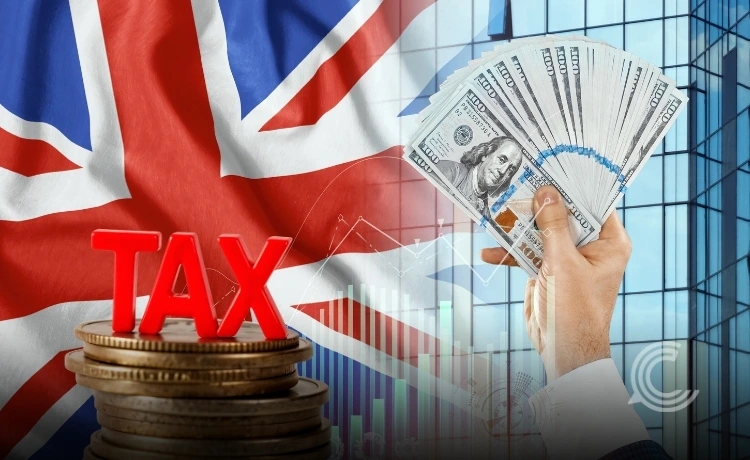UK Budget Highlights: Tax Hikes, EV Levy, Two-Child Cap Dropped

Key Points:
- The UK budget will see tax rises totalling £26.1 billion annually by 2029-30, with a major portion coming from extending the freeze on income tax thresholds
- The controversial two-child benefit cap will be scrapped from April 2026, a measure expected to cost £2.3 billion and significantly reduce child poverty
- The Office for Budget Responsibility (OBR) estimates the government retains fiscal headroom of nearly £22 billion in five years
In a highly anticipated autumn UK budget, Chancellor Rachel Reeves unveiled a suite of tax increases and targeted spending reforms, setting a clear financial direction for the government. The announcement, however, was preceded by a chaotic leak, where the independent fiscal watchdog, the Office for Budget Responsibility (OBR), unexpectedly published its key economic analysis ahead of the Chancellor’s address.
Reported by Guardian, the OBR’s early release provided a rare, unvarnished look at the fiscal calculations underpinning the budget policies.
A Hefty Tax
The Chancellor’s plan centres on raising substantial revenue, with the OBR confirming tax rises will bring in £26.1 billion by 2029-30. The largest single revenue generator is the decision to freeze tax thresholds for an additional three years, holding the point at which individuals start paying higher rates of tax.
This measure, which is expected to raise £8 billion, is a form of fiscal drag. It means as wages increase, more workers are automatically pulled into higher tax bands, a politically quieter, yet highly effective, method of increasing the tax burden on working people. This could secure the government’s position in a challenging economic landscape, particularly one focused on the cost of living crisis.
Other key revenue raisers include a change to National Insurance rules, imposing a charge on ‘salary-sacrifice’ pension contributions above an annual £2,000 threshold, which will raise £4.7 billion from April 2029. Taxes on the gambling industry are also hiked to raise over £1 billion.
New Taxes and Property Levies
The Budget also introduces new levies to adapt the tax system to changing economic and technological realities. A new mileage-tax on electric cars will subject EV drivers to a 3p charge for every mile driven, expected to raise £1.4 billion. This addresses the long-term decline in fuel duty receipts as the transition to zero-emission vehicles accelerates.
High-value property owners face a Mansion Tax, which introduces an extra charge on properties valued at more than £2 million. This will raise an estimated £0.4 billion, with costs ranging from £2,500 for homes valued between £2 million and £2.5 million, up to £7,500 for those over £5 million, as confirmed by Sky News.
For investors, the tax paid on dividends, property, and savings income will increase by two percentage points, generating an estimated £2.1 billion. Simultaneously, the Chancellor announced a freeze on fuel duty until next September, a measure costing the government £2.4 billion next year, in a bid to ease pressures on the cost of living.
Social Reforms and Economic Outlook
The Budget balances its revenue-raising measures with a significant social spending commitment: the scrapping of the two-child benefit cap from April 2026. This policy currently restricts financial support for third and subsequent children born after April 2017. Its removal will cost £2.3 billion and is directly aimed at reducing child poverty, a key government priority in addressing the ongoing cost of living challenge. This reform will increase benefits for affected families, with the government hoping for a direct, positive impact on reducing poverty rates.
The OBR’s accidentally released report provided crucial context for the decisions. The independent forecaster anticipates the economy will grow by 1.5% this year, an increase from previous expectations, but noted that inflation will be stickier, forecast at 3.5% this year and 2.5% next, reported by Morningstar. This higher-than-expected inflation outlook directly feeds into the OBR’s revised forecast for fiscal headroom, which now sits at a healthy £22 billion in the fifth year of the forecast, providing the government with a larger buffer to meet its fiscal rules.
While the Budget delivers a high-tax, high-spend package, it also promises infrastructure investment via £13 billion of “flexible” funding for seven regional mayors. The government further pledges to increase defence spending to 2.6% of GDP from 2027.
The full impact of this budget, particularly the long-term effect of freezing tax thresholds and introducing new levies on drivers, will become clear over the coming years as the economy navigates slower productivity growth and persistent cost pressures.



